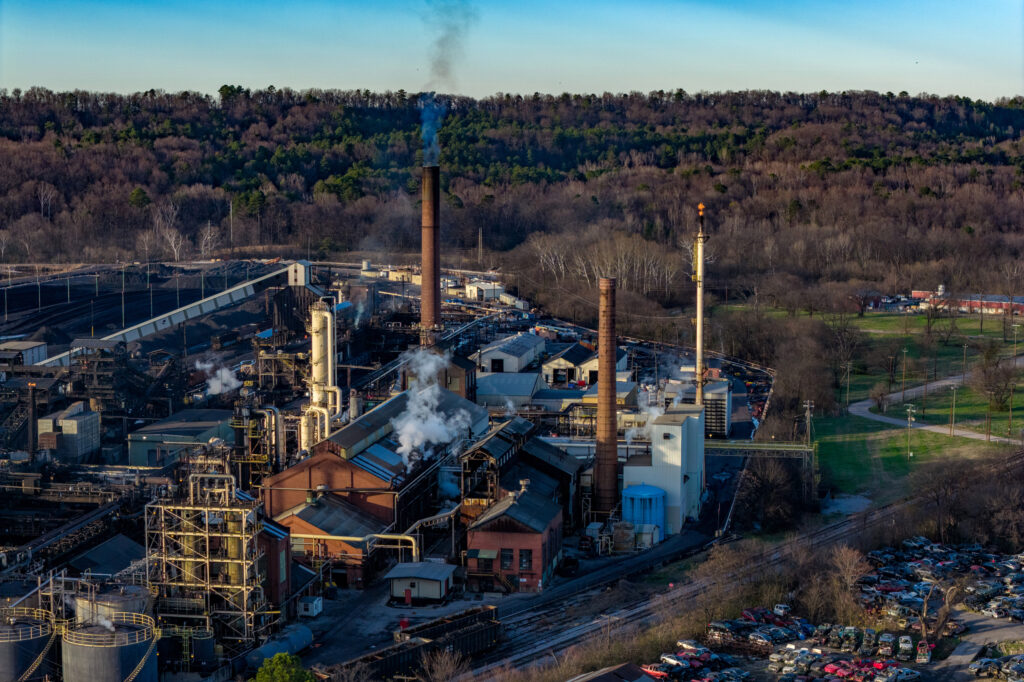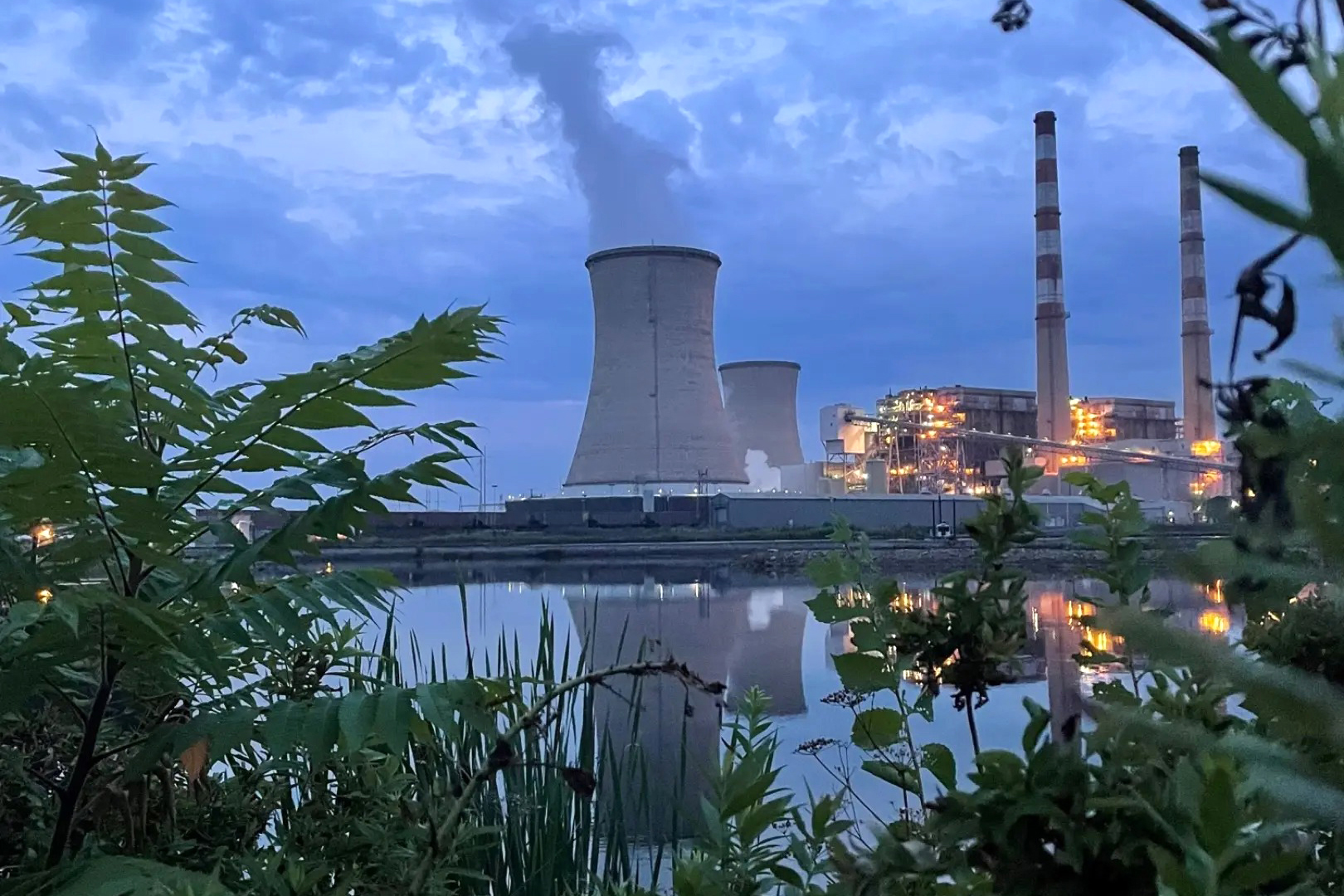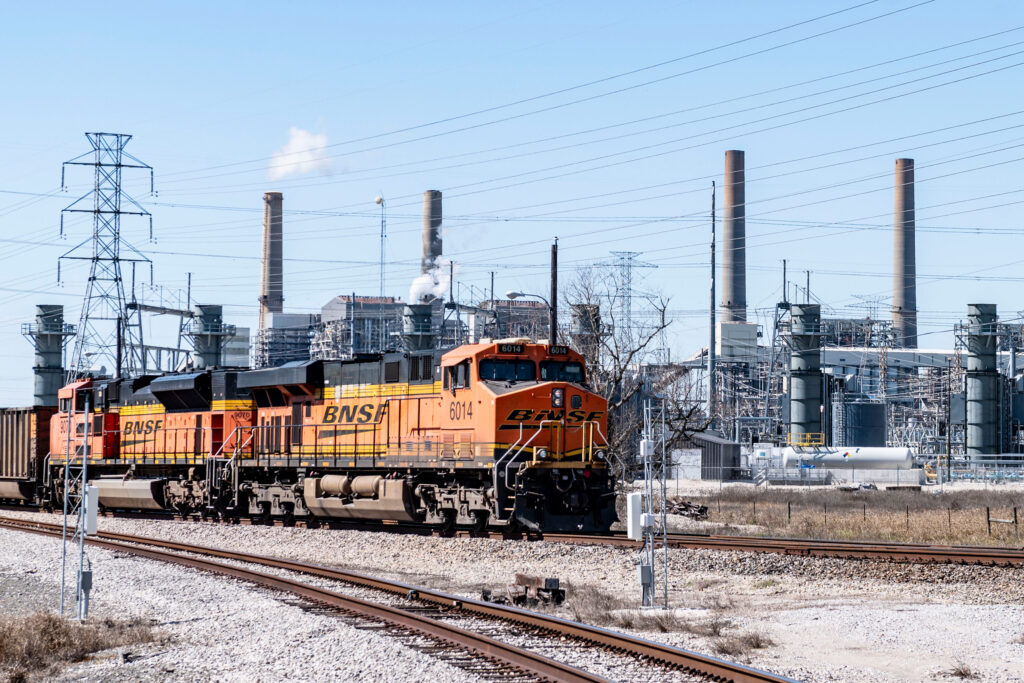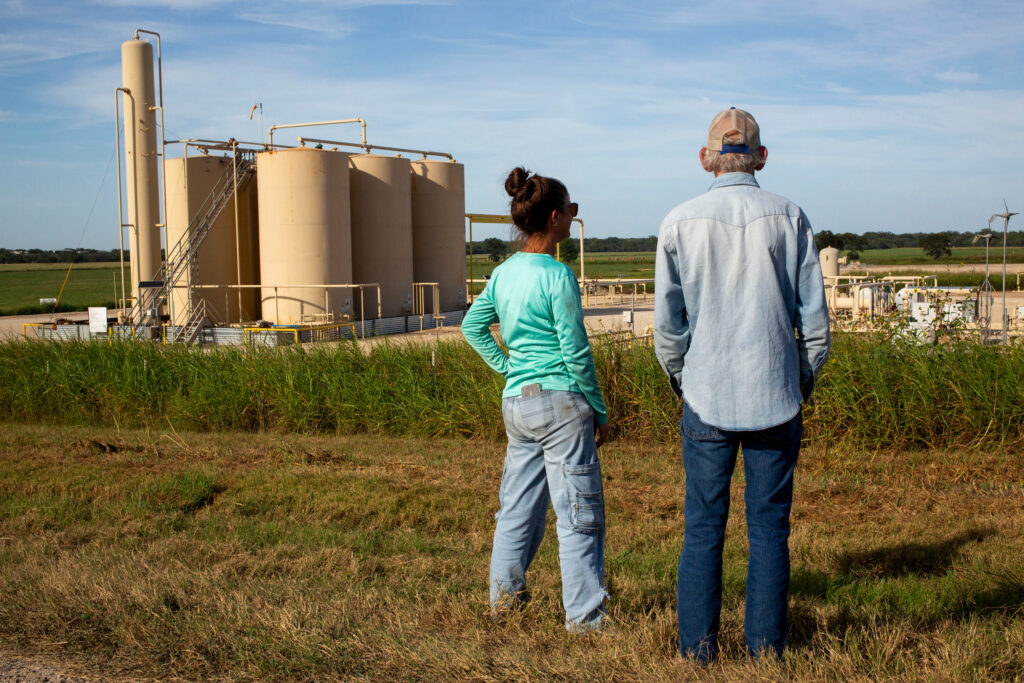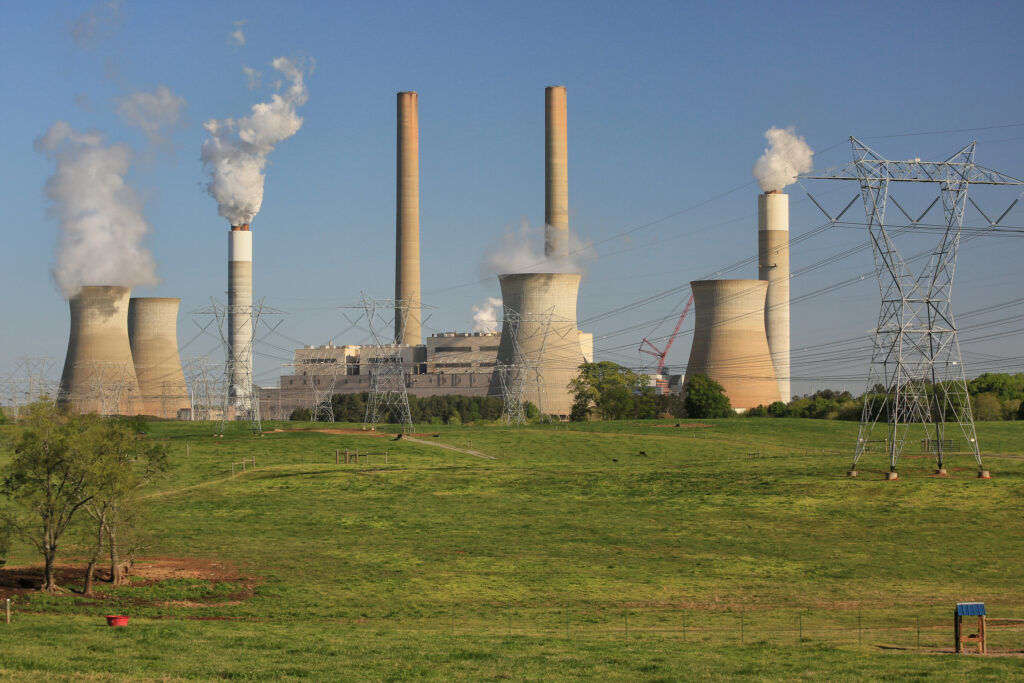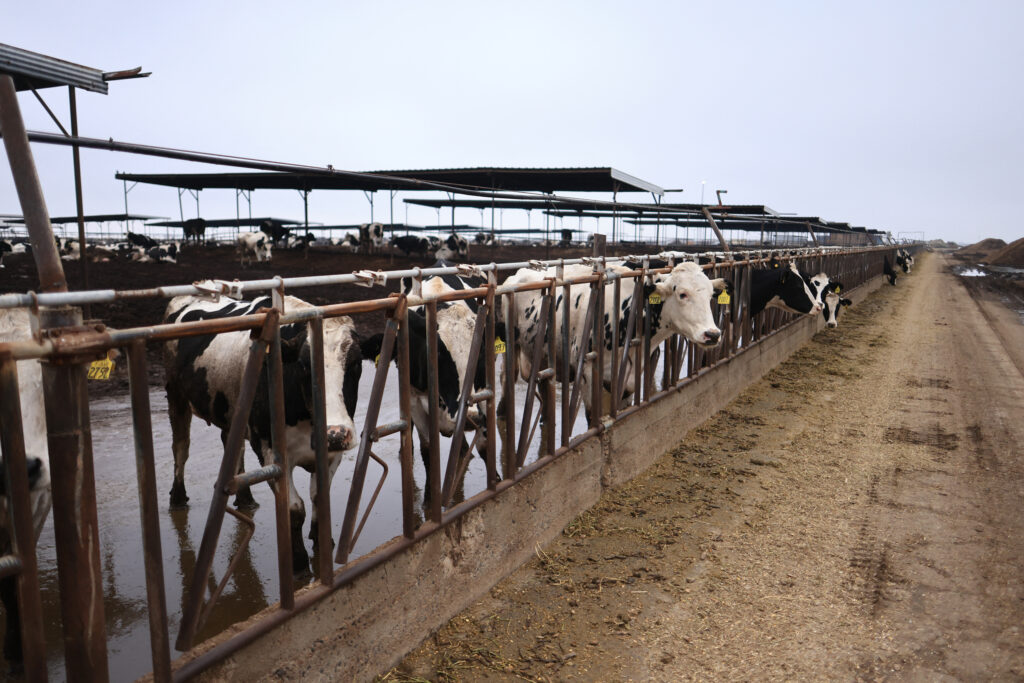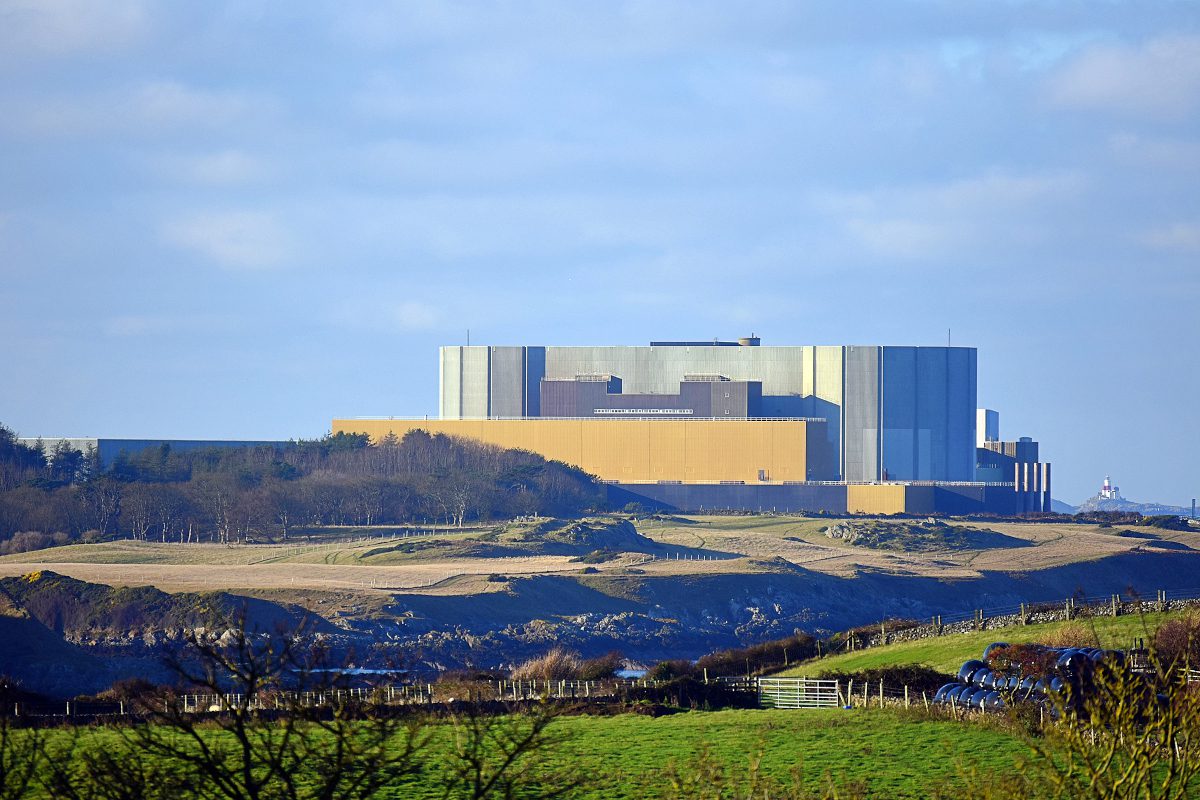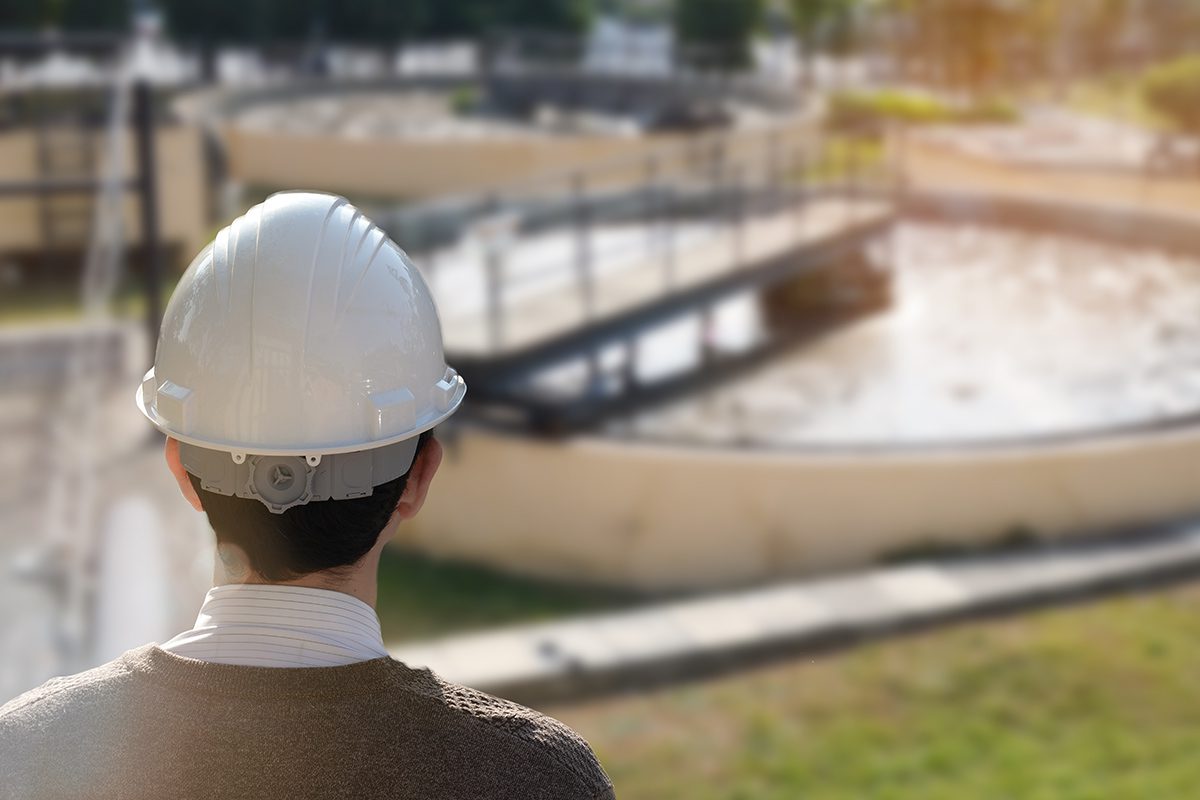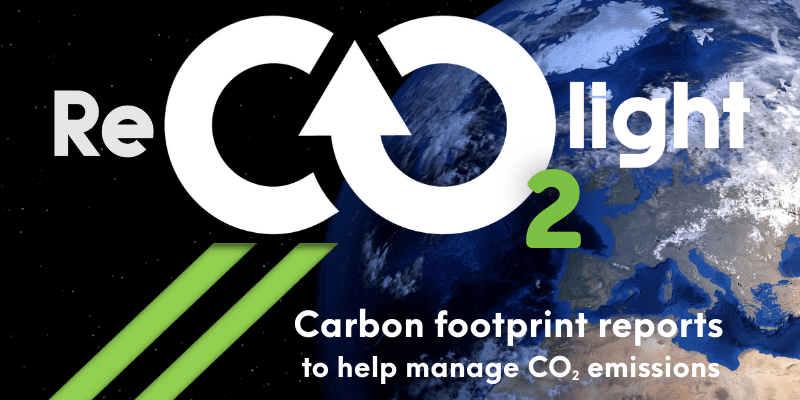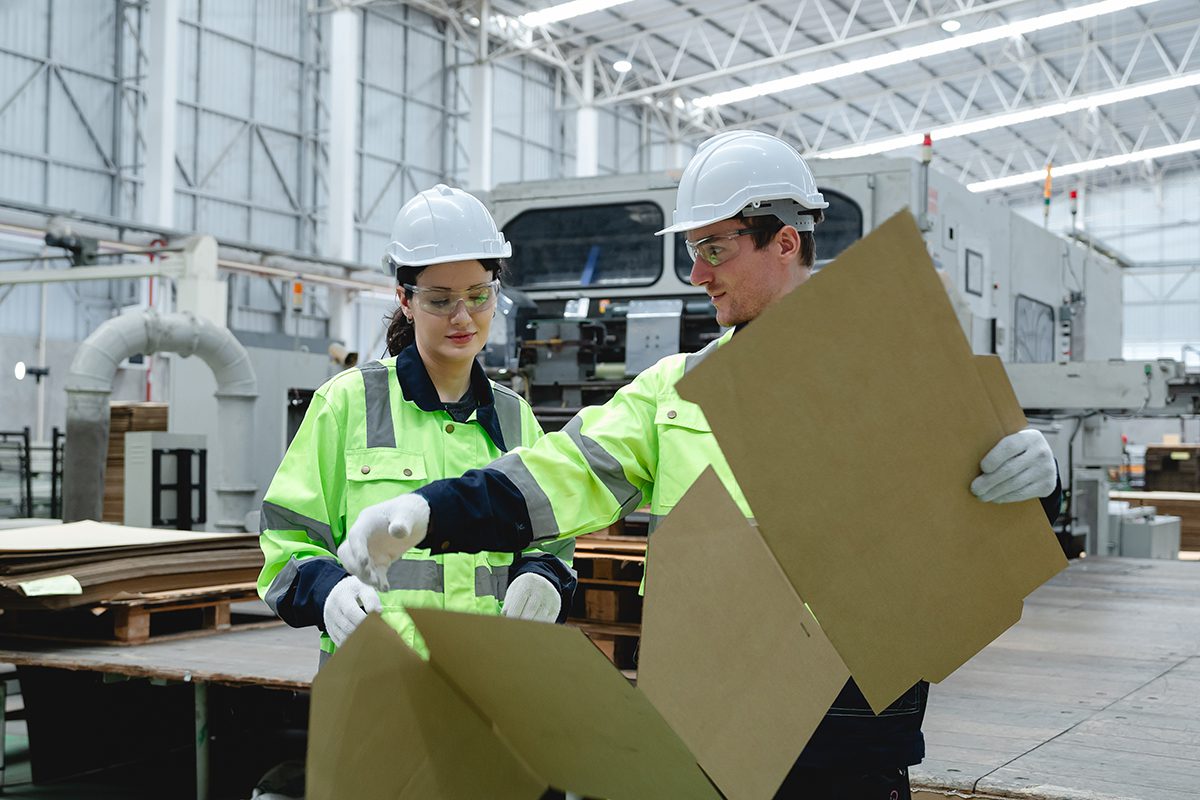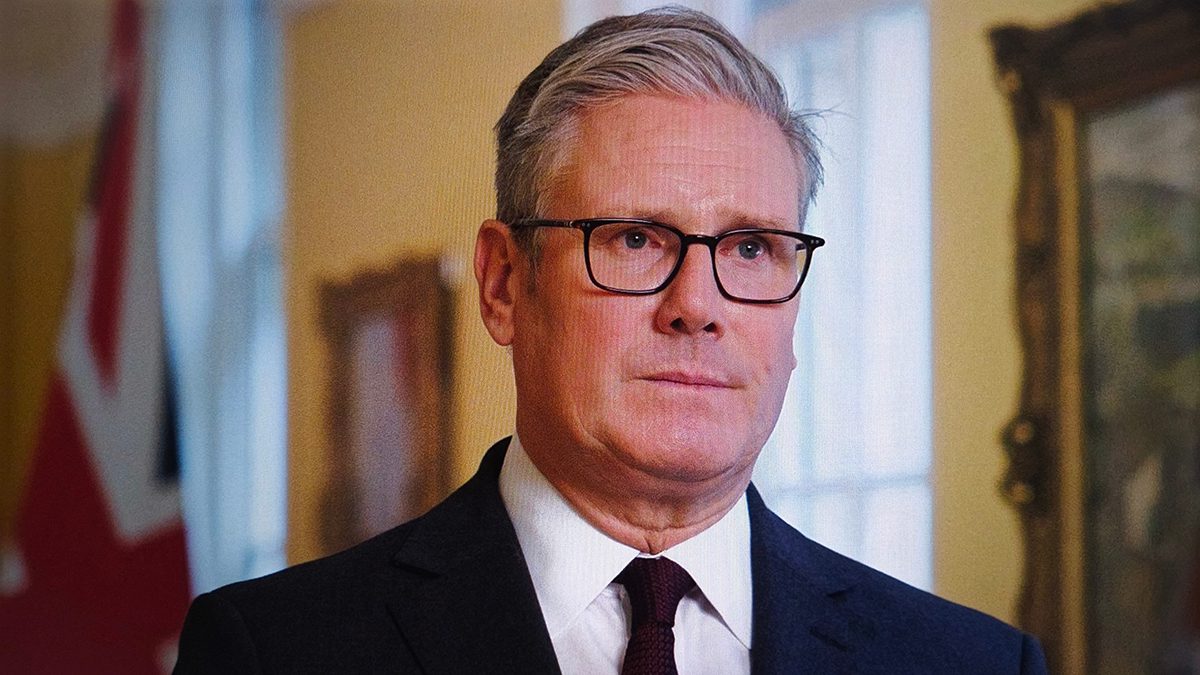This story was supported by the Pulitzer Center.
One morning in late September, on the shores of Lake Erie, Toby Rice took the stage before a room of fracking executives and gas industry types working in the Marcellus Shale.
“I was in New York City the past three days for Climate Week,” he said. “I only got flipped off one time, so I think they’re warming up to us.”
In a speech Rice would later call the “Shalennial Situation Report,” the president and CEO of EQT Corp. outlined the Pittsburgh-based gas giant’s business model, projections and advocacy for fossil fuel expansion in the Appalachian Basin and across the world, presenting a vision, as he often does, to “unleash” American gas exports.
“It’s never been more important to produce energy in this country,” he said.
“It’s also never been more difficult to produce energy in this country,” he said. Pipelines are difficult to build. Permitting is a slog of red tape.
“We need to make sure we have leaders that understand how important our industry is, that will cherish our industry and help us to drive it so that we can meet the ambitions for all Americans,” Rice said, praising the “proud energy champions.”
The next speaker was Dave McCormick, then the Republican nominee for U.S. Senate. “America, led by Pennsylvania, must become the world’s most energy-dominant nation,” McCormick said. “We must drill more. We must produce more. We must export more clean Pennsylvania natural gas to the world.”
He pledged to help remove Biden-era restrictions on drilling on federal lands, support pipelines and export terminals, and pursue permitting reform to make it easier to build fossil fuel infrastructure — “to finally unleash Pennsylvania’s energy future.”
Since taking the helm at EQT in 2019, Rice has become one of the most influential fossil fuel executives in America. He is the region’s foremost public advocate for the gas extracted from the Marcellus Shale, leveraging his position at EQT to sway politicians and pursue policy to build what the 42-year-old calls a “Shalennial” vision of American energy. Donald Trump’s return to the White House and Republican control of Congress put that vision ever closer to reality.
EQT did not make Rice available for an interview for this story.
He is poised to have significant influence over U.S. energy policy at a time when it will likely take a hard swing toward fossil fuel interests. For Rice, that’s a win, and a punctuation mark on a yearslong public campaign. But for the American consumer in EQT’s backyard, it’s likely to mean higher energy prices if Rice gets his way.
‘He wills things to happen’
Twenty years ago, for a TV interview ahead of a playoff baseball game at Rollins College in Winter Park, Florida, Rice struck a bold pose. He sported a pine tar mohawk under a Jack Daniels bandana and lounged shirtless on a purple Honda motorcycle he’d painted to resemble a Harley Davidson.
“He was just an absolute nut as a player,” his coach, Bob Rikeman, recounted in an interview with PublicSource. He was a walk-on to the team, extremely hard-working, confident and a good student, studying chemistry, with an infectious, dominating personality — a natural leader, Rikeman said. By his senior year, Rice was an All-American and player of the year in Division II’s Sunshine State Conference, leading his team to the semifinals of the Division II College World Series.

“Toby Rice, he is a bulldog,” Rikeman said. “You can deny him all you want. You can tell him it can’t be done all you want. That’s not acceptable to Toby Rice. He wills things to happen. He’s that type of guy. And I saw the same thing happen in the oil field.”
After graduating from Rollins, Rice worked as a roughneck on an oil rig in Texas for a time. His father, Dan, was a top portfolio manager of energy mutual funds at BlackRock, and he brought $50 million to a venture with Toby and brothers Daniel and Derek. In 2007, they founded Rice Energy from a Pittsburgh apartment.
“This is the American dream story,” Rice said during a recent interview at Climate Week.
Rice Energy arrived as one of the early players in the Marcellus Shale revolution. They named their sites after comic book heroes: the Iron Man Pad, the Wolverine Pad, the X-Man Pad.
Rice was one of the youngest of 288 participants at a 2008 workshop taught by Terry Engelder, the geologist credited with first calculating the vast stores of hydrocarbons beneath the hills of Appalachia. Engelder recalled Rice’s interest in fracking tricky geology, like longwall mines, and of all the alumni of that workshop, Engelder said, Rice climbed the farthest and the fastest.
“The rise of Toby is nothing short of spectacular,” he said.
Rice would go on to hire his former baseball coach, who rose through the ranks, eventually retiring as a vice president. Rikeman described Rice as a charismatic leader loved by his employees, who wasn’t afraid to get his hands dirty, often driving his pickup truck to well sites in the early hours of the morning. He was obsessed with technology and efficiency.
“He’s just built different and he doesn’t know how to stop,” Rikeman said.
Toby Rice in 2006 before the launch of Rice Energy.
Building the company was a family affair. Rice’s wife was in charge of land operations, and now they’re raising four children in Washington County.
Ten years after its founding, Rice Energy was a top 10 producer of natural gas and, in 2017, the family sold their company to EQT for $6.7 billion, creating a consolidated Appalachian gas giant producing more than any other firm in America. The sale made Rice’s father a billionaire.
Toby Rice, though, argued that EQT had mismanaged the acquisition and employed inefficient production methods. He waged a proxy contest and a hostile takeover, emerging in 2019 at the helm.
A fracking and lobbying gorilla
While corporate headquarters is in downtown Pittsburgh, Rice leads EQT from a former karate dojo above a Fine Wine & Good Spirits store in suburban Carnegie. Against a wall matted in faux greenery behind his desk, fluorescent lights spell out “stay shaley” in cursive text and a yellow “Don’t Tread on Me” flag hangs in the window. Gorilla statues and walls lined with portraits of Andrew Carnegie, John D. Rockefeller, J.P. Morgan — scrawled over with face tattoos and splashes of colorful graffiti — poke into the background of his frequent cable news appearances.
Publicly, Rice presents as the “Shalennial” — a blend of shale and millennial — a moniker that doubles as his social media handle, followed by a bio: “Energy Activist. People’s champion of natural gas.”
As CEO, Rice has placed a premium on tech and efficiency like he did at Rice Energy. He acquired the gas company Tug Hill last year for $5.2 billion, locking in more than 2,000 untapped drilling sites, enough to keep up production “for decades.” Rice leads a vigorous campaign aimed at “unleashing” American exports of liquified natural gas, or LNG, which he casts as “the biggest green initiative on the planet.” (Climate scientists disagree.)
“He is evangelical about natural gas,” said Tyson Slocum, director of the energy program at Public Citizen, a corporate accountability group in Washington, D.C. “He ascribes almost supernatural powers to natural gas,” he added. “I’m waiting for him to say that it can ward off COVID and evil spirits.”


In 2021, U.S. Sen. Elizabeth Warren, D-Massachusetts, accused Rice and 10 other fossil fuel executives of price gouging and corporate greed. Rice wrote a nine-page rebuttal that would include the four-word foundation for a yearslong campaign: “LNG is the answer.”
“From that day forward, you can see, on the national level, people are talking LNG,” said John Bane, EQT’s top lobbyist, at the September conference in Erie.
From town hall appearances in EQT’s core turf in rural Greene County to Washington, D.C., Germany and the United Nations climate conference in Dubai, Rice has taken to spreading the good word on gas, seeking to drum up support for its export.
“It’s all about fracking as much gas as you can and selling that gas for the highest possible price,” Slocum said.
Under Rice, EQT last year signed a 15-year contract to send a million tons of gas each year to an LNG facility in Louisiana. And in January, the company announced an agreement to provide half a million tons annually to a proposed LNG facility in Texas. EQT, Rice said at the time, is uniquely positioned “to compete and win in the global energy arena.”


Later that month, the Biden administration announced it would temporarily halt new permits for LNG export facilities, citing an evolving understanding of “the perilous impacts of methane on our planet” and potential increased energy costs for Americans. Rice called it a political play intended to garner votes in an election year. (The pause was struck down in July by a federal judge in Louisiana, after 16 state attorneys general sued, arguing the pause harmed their economies.)
While that win came via the courts, the Shalennial has not ignored the legislative branch.
Last year through August of this year, Rice personally donated nearly $238,000 to federal campaigns or political action committees, including $56,200 in support of McCormick. EQT’s corporate political action committee [PAC] donated $250,000 to the Republican Senate super PAC just days after Biden announced he would pause LNG export permits.
Since 2021, EQT has spent more than $2.6 million lobbying Congress and federal government branches to support LNG interests, lobbying reports show.
Rice has folded EQT into industry advocacy groups that amplify his message to lawmakers and the public. Those groups include Partnership to Address Global Emissions, which has spent more than $5 million lobbying for LNG exports since 2022, and Natural Allies, which has spent more than $10 million on public relations efforts framing natural gas as a climate friend, rather than foe.
More pipelines, more exports, more gas
Domestic gas prices have hovered around $2.50 per million cubic feet since 2023. Across the Pacific Ocean, that price jumps to $12 for LNG and in Europe, it’s averaged more than $10, offering U.S. gas producers like Rice an overseas opportunity to sell their gas with far greater margins.
Since 2022, when Russia invaded Ukraine, Rice has cast LNG as a global savior: a geopolitical wedge countering Putin’s aggression and the influence of “petro-dictators” on the world stage, lifting people who “use wood and dung as a primary source of energy” from energy poverty, and addressing climate change by replacing coal abroad.
“What he’s typically not going to be emphasizing — unless he’s talking just to his investors — is [that] by promoting LNG exports and gas expansion, ‘I am going to get filthy, stinking rich,’” Slocum said.
Some say Rice’s approach has actually harmed the industry.
“It’s the Toby Rice mentality writ large that has made it hard for the industry to make money over the past decade,” said Clark Williams-Derry, an energy finance analyst at the Institute for Energy Economics and Financial Analysis.
The principles Rice personifies — an evangelist’s belief that demand for gas is increasing and that production must grow at all costs to meet it — have propelled him to the forefront of the industry. But that mindset of growth and cutthroat competition, Williams-Derry said, has also made the gas industry unprofitable, flooding the domestic market with supply and driving down prices and profits.
The solution, Williams-Derry said, is finding demand outside of North America, and for Rice, that means unleashing U.S. LNG on Europe and beyond.
To realize that vision, Rice needs a way to transport gas from the hills of northern Appalachia to market. The problem, he has said, is a bottleneck: There aren’t enough pipelines to handle the supply.
The federal government permits interstate pipelines.
Since 2021, Rice has personally donated $13,100 to the campaign coffers of West Virginia Sen. Joe Manchin. EQT’s corporate PAC, meanwhile, gave Manchin’s campaign $16,400 since 2022 and another $20,400 to Manchin’s Country Roads PAC, plus $100,000 this year to Team West Virginia, a super PAC funneling cash to elect Trump and put Republican Gov. Jim Justice in the Senate.
In June, the 303-mile Mountain Valley Pipeline finally came online after years of legal challenges and an eventual act of Congress, negotiated by Manchin, that greenlit its completion, skirting regulatory approval processes.
“It’s been incredibly difficult to get this pipeline constructed,” Rice said at the time. “But thanks to the proud energy champions we have here in our industry and in D.C. and across the country, we were able to get Mountain Valley Pipeline completed … I hope people understand that these important energy champions were not fighting for a pipeline — we were fighting for America.”
Earlier this year in March, Rice acquired the pipeline operator Equitrans, and with it, ownership of the Mountain Valley Pipeline (which he affectionately nicknamed “The Most Valuable Pipeline”).
The merger evolved EQT from a fracking company to a vertically-integrated natural gas firm, ready to compete and win, as Rice put it, “in a global era of natural gas.” He called it “the most strategic and transformational transaction EQT has ever pursued.”
After the acquisition, when the Mountain Valley Pipeline finally came online in June, Rice appeared in a video address alongside Manchin and Equitrans Chairman Tom Karam.
“MVP has most valuable partners, and Joe, I’d like to thank you for your leadership in getting this pipeline across the line,” Rice said.
Manchin credited Rice for his work with Democrats and Republicans in Congress and the administration. “You all helped us make sure that they had the facts.”
Despite President Joe Biden’s pause on new gas terminals, fossil fuel firms have seen record profits, and American LNG export capacity is on track to double by 2027 because of projects that have already been permitted.
“America has become the world leader in oil production. We have become the world leader in natural gas production. We are the world’s No. 1 LNG exporter,” Rice said in September, during a Climate Week interview with Axios. “But ask yourself a question: Look around at the world and ask yourself: Is that enough?”
In the president-elect, he has a fellow believer that it is not.
In April, Rice went to Mar-a-Lago, Trump’s private Florida club, where the former and incoming president asked a group of oil and gas executives, including leaders of ExxonMobil and the American Petroleum Institute, to donate $1 billion to his reelection campaign, while promising to end regulations and pollution controls implemented under Biden. Trump has said he would immediately repeal Biden’s pause on LNG permits.
Toby’s vision of the future
An American flag pinned to his lapel, Rice stood in the front row at the Fairmont Hotel in downtown Pittsburgh, early in the morning on Nov. 6. When McCormick, the Republican candidate for U.S. Senate in Pennsylvania, took the stage at his election night watch party and announced that the results looked favorable, Rice smiled and cheered.
Hours later, Trump was named president-elect, securing a second term in the White House. And in a few days, the Associated Press called the Senate race for McCormick. Incumbent Democrat Bob Casey conceded on Nov. 21 With that, Rice has a new ally in Congress.


Like McCormick, Trump promised to “kill” Environmental Protection Agency [EPA] regulations that rein in carbon emissions. The president-elect embraced the mantra “Drill, baby, drill.” He pledged that his pick to head the EPA, former GOP congressman from New York Lee Zeldin, would “ensure fair and swift deregulatory decisions that will be enacted in a way to unleash the power of American businesses.” Trump’s pick for energy secretary, fracking executive Chris Wright, has argued that “there is no climate crisis,” and if confirmed would be responsible for overseeing federal LNG policy.
What that will mean for EQT’s bottom line is unclear. More drilling means more gas — but a greater supply means lower prices and less profits. But Trump’s election means that Biden-era skepticism about LNG exports is all but certain to end. And as McCormick promised, the U.S. is likely to build more export infrastructure and ship more American gas around the world to Europe and Asia, where prices are six times higher than they are domestically.
If that translates into a profitable win for Rice, it might not be one for American consumers. Even as Rice touts the economic and security benefits of American energy dominance, more exports of LNG could mean higher energy costs here. It already has.
In June, Industrial Energy Consumers of America [IECA] sent a letter to Manchin and Sen. John Barrasso, R-Wyoming, urging against “carte blanche approvals of all LNG export requests.” That, the nonpartisan trade group said, would be detrimental to American manufacturing.
The competitiveness of all IECA member companies (which include some of the largest corporations in the country, including U.S. Steel) is dependent on the affordability of natural gas and electricity, the letter read.
“Increasing export capacity increases the risk that the U.S. price will become attached to the much higher global price, like crude oil is today,” the trade group wrote. “This is the unstated goal of the oil and gas industry because when that happens, the price of natural gas in the U.S. increases and their profitability increases by tens of billions per year at the expense of all residential, commercial and industrial consumers of natural gas in the U.S.”


For people in places like Western Pennsylvania and West Virginia, unleashed LNG exports could upset the equation that has long included airborne emissions and water contamination on one side, and cheap, homegrown energy on the other.
Last week, more than 70 community organizations across Pennsylvania signed a letter to U.S. Energy Secretary Jennifer Granholm. “If the DOE allows LNG exports to continue unchecked, these projects will proceed without critical reviews of their environmental, economic, and public health impacts,” they wrote.
“If Toby Rice gets his way, we are going to deregulate LNG exports. And that gas being produced and poisoning Pennsylvanians in the Marcellus Shale is going to be for the benefit of people living halfway across the world, not for Americans,” said Public Citizen’s Slocum.
Domestically, he said, “It’s going to raise electricity bills. It’s going to raise home heating costs.”
Rice and EQT, he said, have invested some of their “mountains of cash … to convince people that LNG exports and fracking are needed to save the world.
“They are not. They’re actually destroying the world. And raising prices for Americans in the process.”
Quinn Glabicki is the environment and climate reporter at PublicSource and a Report for America corps member. He can be reached at [email protected] and on Instagram and X @quinnglabicki.
This story was fact-checked by Matt Maielli.
This article first appeared on PublicSource and is republished here under a Creative Commons license.

About This Story
Perhaps you noticed: This story, like all the news we publish, is free to read. That’s because Inside Climate News is a 501c3 nonprofit organization. We do not charge a subscription fee, lock our news behind a paywall, or clutter our website with ads. We make our news on climate and the environment freely available to you and anyone who wants it.
That’s not all. We also share our news for free with scores of other media organizations around the country. Many of them can’t afford to do environmental journalism of their own. We’ve built bureaus from coast to coast to report local stories, collaborate with local newsrooms and co-publish articles so that this vital work is shared as widely as possible.
Two of us launched ICN in 2007. Six years later we earned a Pulitzer Prize for National Reporting, and now we run the oldest and largest dedicated climate newsroom in the nation. We tell the story in all its complexity. We hold polluters accountable. We expose environmental injustice. We debunk misinformation. We scrutinize solutions and inspire action.
Donations from readers like you fund every aspect of what we do. If you don’t already, will you support our ongoing work, our reporting on the biggest crisis facing our planet, and help us reach even more readers in more places?
Please take a moment to make a tax-deductible donation. Every one of them makes a difference.
Thank you,



